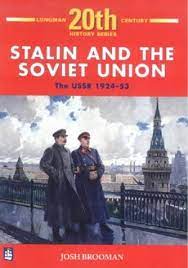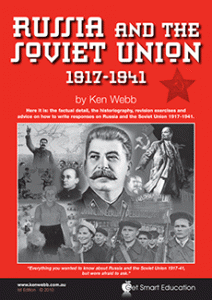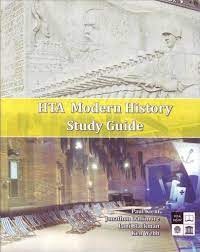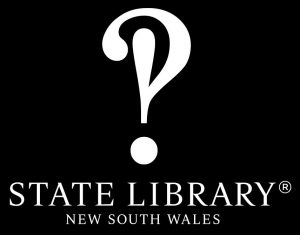USSR 1917- 1941

Search terms
USSR – Soviet, Russia, Bolshevik
Stalin – Stalinism, Communism
Change – impact, effect, purges
Social change – family, life, work, people, schools, children, peasants
Culture – women, religion, church, art music, education, propaganda
Years: 1922 – 1953
Specific policies – collectivization, kulaks, NKVP, totalitarianism
What information tools?

Search terms: Stalin and society
e.g. Thurston, R. W. (1991). The Soviet family during the great terror, 1935-1941. Soviet Studies, 43(3), 553.
Search terms: Stalin Collectivization
e.g Landis, E. (1998). Peasant Rebels Under Stalin: Collectivization and the Culture of Peasant Resistance. The English Historical Review, 113(452), 787
e.g Great purge
-
English archive of digital Russian archive guidebooks (available in Russian).
-
A collection of documents in English translation from pre-Petrine to 1931.
EuroDocs: Russian Revolution, Civil War, and USSR 1917-1991
-
The Harvard Project on the Soviet Social System Online
A searchable archive of over 700 interviews of Soviet refuges from 1917 to the mid-1940s. In English. Life on the kulaks interviews -
Internet Modern History Sourcebook
An online archive of Imperial and Soviet documents translated into English. -
A searchable archive containing selected works by Lenin, Trotsky, and Stalin.
-
Revelations from the Russian Archives
Collection containing historical background and primary sources. English translations. -
Seventeen Moments in Soviet History
Searchable archive of texts, images, maps, audio, and video materials 1917-1991. English translation.
The basics

The basics
Stalin and the Soviet Union: The USSR 1924-53. (1994). Longman.p. 18-19

Webb, K. (2015). Russia and the Soviet Union 1917-1941. Get Smart Education pp.115-120
Historians perspectives and section

HTA modern history study guide. (2019). History Teachers Association of NSW Inc. pp.98.101

Make a mindmap of your extended response

An Annotated bibliography explained UNSW


Refer to Marking criteria?
Have you addressed the verb evaluate?
Do I need to acquire for more evidence?
Have I presented Historians viewpoints?
Is my Extended response cohesive? Ask someone else to read your draft





